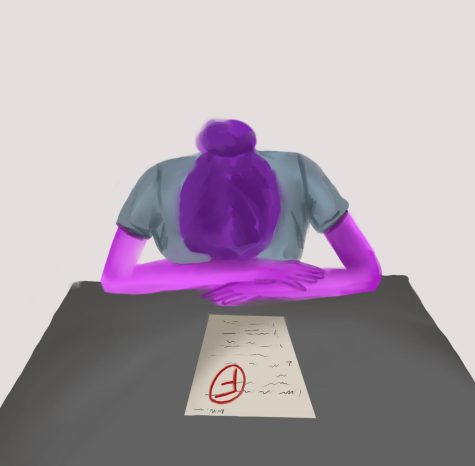Why teachers should offer test corrections

Many students at Shorewood have experienced the dread of receiving a test score that is not up to their usual standard, and seeing their grade plummet as a result of that score. Seeing that drop can be discouraging, but for some students, there is an option to remedy it, at least a little. Test corrections allow students to regain some missed points, but while some students are able to take advantage of them, many are not.
Because there is no school wide policy for test corrections, every teacher has a different stance on them. Either they offer them, in one form or another, or they don’t. For most students, that’s at least six different teachers, and the chance of a student being able to redeem their original score boils down to luck — it all depends on which teacher and classroom policy they end up with.
Most teachers that don’t offer test corrections have a similar reasoning behind their method: test corrections offer students a way out of facing the consequences of not studying the topic being taught. In short, it allows students to get an easy A.
Your grade doesn’t need to be stagnant. A student who fails their first test and analyzes their mistakes likely internalizes more learning than a student who got 100% correct. Don’t let your grade define you; let your understanding define you.
All teachers should offer test corrections so even though students may not be able to gain back full points, they still get a chance to have their grade reflect their current understanding in the subject. Teachers who already choose to offer test corrections have a variety of different approaches. For example, in AP Biology, students can earn back half of the points they got wrong on a test. They come into class during lunch and must write detailed explanations about the problems they initially answered incorrectly, including why they answered the way they did, why it was wrong and why the correct answer is correct. This allows them to learn from their mistakes and achieve a grade more reflective of their level of understanding.
Academically motivated students often want a good grade, but sometimes the importance of learning is forgotten in the obsession with a letter grade. Memorization is not the same as in-depth understanding, although these different mindsets sometimes offer the same results on a test. Students who memorize will likely forget the content quickly, while those who try to actually understand the material have the potential to retain that information long after the unit has passed. Students who are motivated by a letter grade, when offered test corrections, will see a reason to relearn and deepen their understanding of previously taught material.
If the point of school is to guarantee that students receive a high-quality education, then test corrections are a straightforward, effective way to ensure that. With test corrections offered schoolwide, in classes that give students cumulative tests like midterms and finals, students that participated in test corrections will have a better understanding — and likely a better grade — on topics where they originally struggled.
Even though grades are oftentimes an accurate portrayal of a student’s work ethic, knowledge and ability, there are times when a student unexpectedly performs badly on a test. Especially in classes where units build off of one another, one confusing unit could potentially lead to a confusing year, and without test corrections as an incentive, most students will not be self-motivated enough to relearn it on their own. After an especially hard year due to the pandemic, it is time for teachers to consistently offer test corrections, giving their students the opportunity to fully understand and succeed in their classes.
